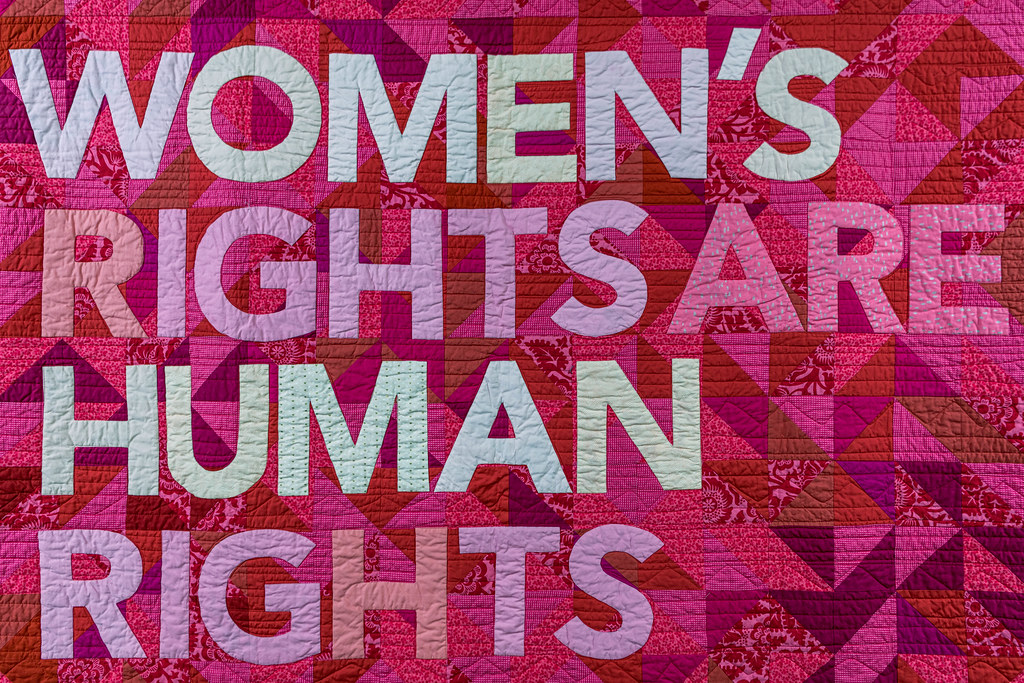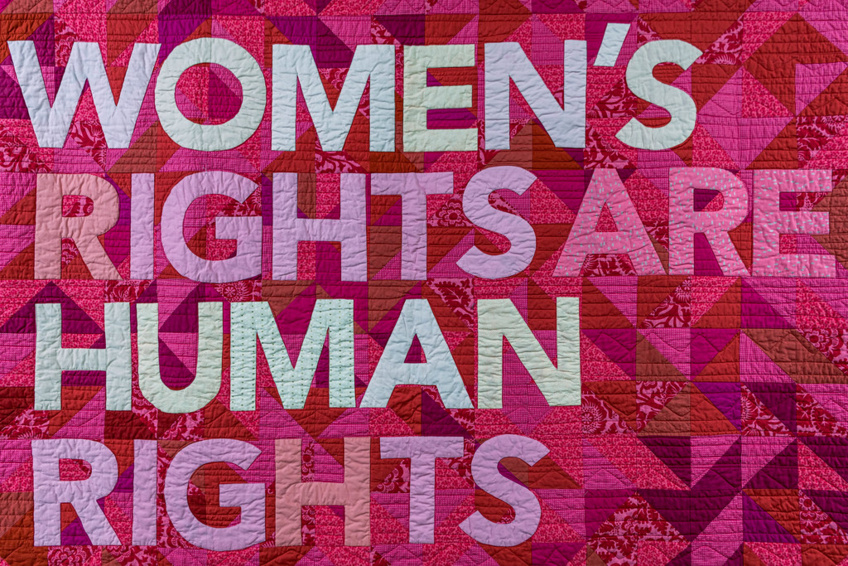Areta Sobieraj, from Oxfam Italy, highlights the significant obstacles faced by women, girls, and LGBTQI+ individuals in expressing themselves, accessing basic rights, securing equal opportunities in education and employment, attaining leadership roles, and escaping violence.
Sobieraj emphasized the necessity for governments, policymakers, communities, and businesses to prioritize listening to these marginalized voices. In a recent presentation, Sobieraj, serving as the global citizenship education lead at Oxfam Italy, discussed the initiatives undertaken by her organization to ensure that the voices of the unheard are included in policymaking aimed at addressing issues such as inequality, poverty, and climate change.
“Promoting transformative changes that allow poverty and inequality to be eradicated in the long term is the founding element of Oxfam ’s mission,” said Sobieraj.
Oxfam places significant emphasis on addressing poverty, injustice, and exclusion within both communities and individuals. The organization prioritizes the needs of the most vulnerable groups and actively involves them in shaping local policies and programs. Oxfam believes that strengthening community engagement and focusing on local initiatives are essential steps towards realizing the United Nations' Sustainable Development Goals effectively.
“Being treated equally and enjoying the same rights, no matter your sex or gender, is a fundament human right,” said Sobieraj. “However, according to last year’s World Economic Forum, it will take another 132 years to close the global gender gap.”
The most recent gender parity index released by the European Institute for Gender Equality (EIGE) depicts a similarly discouraging scenario, with an annual increase of only 0.6 points. Findings reveal that certain marginalized demographics, particularly susceptible during crises, face heightened risks as intersectional gender inequalities exacerbate the situation.
You can watch the video interview with Oxfam’s Areta Sobieraj here
“As crises are compounding women’s workforce achievements are suffering, as is gender parity,” said Sobieraj. “This means that on top of being mistreated because of your gender, you are also discriminated against because of your ethnicity, sexual orientation, race, disability, income, and occupation for example. As a result we now have an even wider gender and racial gap. And, women and girls are the most exposed to the effects of the climate crisis.”
Facing disproportionate consequences
Despite bearing minimal responsibility for climate-damaging emissions, women in rural communities of the Global South endure the harshest repercussions. For instance, although Central America emits merely 0.5% of greenhouse gases, women in countries like Guatemala, Honduras, Nicaragua, and El Salvador experience escalating poverty, hunger, and social violence. These challenges have worsened in recent years, partly due to the impact of climate change.
Areta Sobieraj highlighted the heightened vulnerability of women's livelihoods to climate change effects, pushing many below the poverty line and exacerbating food insecurity. According to estimates from the World Food Program in America, nearly 60% of those experiencing hunger in 2020 were women and girls, with the gender gap widening since then.
Oxfam firmly believes that achieving economic, climate, environmental, and social justice is impossible without gender and generational justice. Sobieraj emphasized the importance of adopting a gender-inclusive approach in policies to address the root causes of inequality and prevent exacerbating existing disparities. Globally, women constitute the majority of individuals living in poverty, necessitating legislative and policy improvements to safeguard their equal rights and ensure comprehensive protection from violence and discrimination.
The key message underscores the imperative of challenging inequalities by transforming gender and power dynamics, patriarchal norms, and associated values through education and advocacy. Empowering women, girls, and LGBTQI+ individuals to assert control and engage in collective action emerges as a pivotal catalyst for sustained advancements in human rights and poverty alleviation efforts.
Sobieraj emphasized the necessity for governments, policymakers, communities, and businesses to prioritize listening to these marginalized voices. In a recent presentation, Sobieraj, serving as the global citizenship education lead at Oxfam Italy, discussed the initiatives undertaken by her organization to ensure that the voices of the unheard are included in policymaking aimed at addressing issues such as inequality, poverty, and climate change.
“Promoting transformative changes that allow poverty and inequality to be eradicated in the long term is the founding element of Oxfam ’s mission,” said Sobieraj.
Oxfam places significant emphasis on addressing poverty, injustice, and exclusion within both communities and individuals. The organization prioritizes the needs of the most vulnerable groups and actively involves them in shaping local policies and programs. Oxfam believes that strengthening community engagement and focusing on local initiatives are essential steps towards realizing the United Nations' Sustainable Development Goals effectively.
“Being treated equally and enjoying the same rights, no matter your sex or gender, is a fundament human right,” said Sobieraj. “However, according to last year’s World Economic Forum, it will take another 132 years to close the global gender gap.”
The most recent gender parity index released by the European Institute for Gender Equality (EIGE) depicts a similarly discouraging scenario, with an annual increase of only 0.6 points. Findings reveal that certain marginalized demographics, particularly susceptible during crises, face heightened risks as intersectional gender inequalities exacerbate the situation.
You can watch the video interview with Oxfam’s Areta Sobieraj here
“As crises are compounding women’s workforce achievements are suffering, as is gender parity,” said Sobieraj. “This means that on top of being mistreated because of your gender, you are also discriminated against because of your ethnicity, sexual orientation, race, disability, income, and occupation for example. As a result we now have an even wider gender and racial gap. And, women and girls are the most exposed to the effects of the climate crisis.”
Facing disproportionate consequences
Despite bearing minimal responsibility for climate-damaging emissions, women in rural communities of the Global South endure the harshest repercussions. For instance, although Central America emits merely 0.5% of greenhouse gases, women in countries like Guatemala, Honduras, Nicaragua, and El Salvador experience escalating poverty, hunger, and social violence. These challenges have worsened in recent years, partly due to the impact of climate change.
Areta Sobieraj highlighted the heightened vulnerability of women's livelihoods to climate change effects, pushing many below the poverty line and exacerbating food insecurity. According to estimates from the World Food Program in America, nearly 60% of those experiencing hunger in 2020 were women and girls, with the gender gap widening since then.
Oxfam firmly believes that achieving economic, climate, environmental, and social justice is impossible without gender and generational justice. Sobieraj emphasized the importance of adopting a gender-inclusive approach in policies to address the root causes of inequality and prevent exacerbating existing disparities. Globally, women constitute the majority of individuals living in poverty, necessitating legislative and policy improvements to safeguard their equal rights and ensure comprehensive protection from violence and discrimination.
The key message underscores the imperative of challenging inequalities by transforming gender and power dynamics, patriarchal norms, and associated values through education and advocacy. Empowering women, girls, and LGBTQI+ individuals to assert control and engage in collective action emerges as a pivotal catalyst for sustained advancements in human rights and poverty alleviation efforts.


 Insights on Women's Rights, Gender Equality, and Climate Crisis Impact: Interview with Areta Sobieraj of Oxfam Italy | Future Magazine
Insights on Women's Rights, Gender Equality, and Climate Crisis Impact: Interview with Areta Sobieraj of Oxfam Italy | Future Magazine





 Companies
Companies